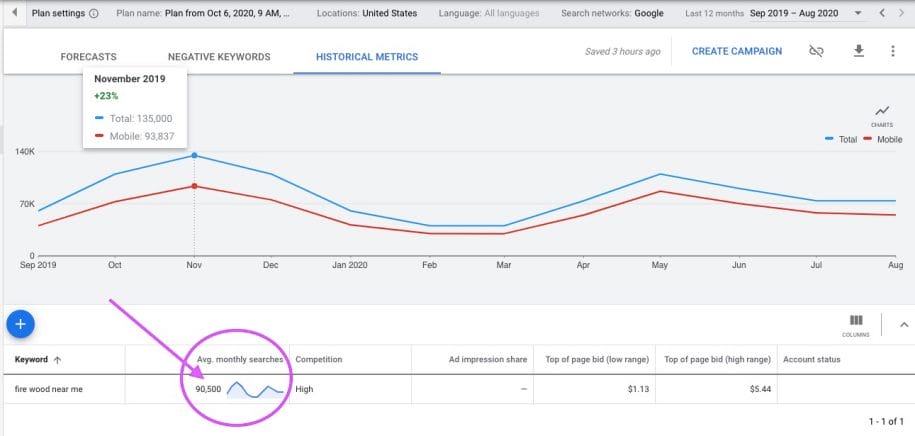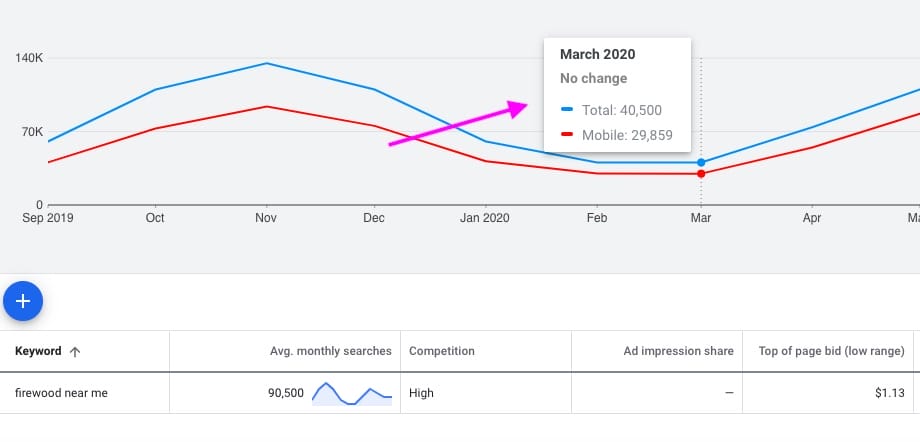Wondering how to start a firewood business but don't know where to start? We've put together a comprehensive guide to deciding whether you should start a firewood business, and a step-by-step action plan if you do.
Starting a Firewood business can be a great side-hustle and potentially provide you enough income to make it a full-time job. Selling firewood might be good old fashioned work, but there are many benefits to being your own boss.
The firewood business opportunity
You might be wondering if there is really that much demand for firewood these days, especially with the convenience of modern heating technology; well, you’d be surprised. There are many scenarios where people still need firewood. Some of these are:
- They are using a wood-burning stove
- Going camping
- They have a wood supply for a back-yard firepit
- Using firewood as a potential back-up heat source
- They are going down to the beach for some fun
Firewood by the statistics
According to Google, the term ‘Fire Wood Near Me’ is searched an impressive 90,500 times per month on average. The peak month being November, with 135,000 total searches. This means people are directly looking for firewood to buy, which is a big opportunity for you.
You may think firewood is only seasonal, which could be true, depending on where you are located. But if you look at the searches for ‘Firewood Near Me,’ even the lowest month (march) receives 40,000+ inquiries.
As far as the location is concerned, you may wonder if there would be demand in warmer places such as texas and California? As you can see by the Google search statistics, Texas and California are some of the states with the most demand for firewood.
For example, California has a northern part that is cooler and may have people in need of wood-burning fireplace fuel. The southern part of the state is hot and lined with beaches and cabins in need of campfire supplies. As shown by the chart below, A total of 11.6% of the searches for firewood are conducted in California, and 8% from Texas.

According to this chart, the following states receive the most searches for the phrase ‘Firewood Near Me.’
- California – 11.6%
- Texas – 8%
- Illinois – 5.6%
- New York – 5.2%
- Pennsylvania – 4.7%
- All other states – 64.9%
Should I start a firewood business?
This question is easily answered if you live in one of the top 5 states shown above. If not, the good news is that a big part of that pie is divided up between the rest of the States. Odds are, you know, if there is demand in your state, and that’s why you are here.
If you are still having trouble wondering if there is enough demand for you to starting a firewood business, you can ask yourself these questions:
- Is it cold where I live at least part of the year (3-6 months)
- Do I live close to beaches or beach communities?
- Do I live by major campgrounds or outdoor destinations?
- Are backyard firepits popular where I live?
Let’s take backyard fire pits, for example. Even if you don’t live somewhere cold, the backyard fire is seriously trending up. As you see from the search graph below, on average, this term is searched over 14,000 times per month in the last 24 months.
However, if we zoom in to a 12 month period, the searches go to 22,500 per month, which is massive growth for just one year. Searches in May 2019 were 12,500 and exploded to an astounding 60,000 in May of 2020.
If you answered yes to 2 out of those four questions above, odds are there is ample opportunity for you to start a firewood business. Now that we have that answered, let’s move on to th pros and cons.
Firewood Business Pros
- Being your own boss = freedom
- Working outdoors
- Could be a nice seasonal income
- Make your own hours
- Great profit margins
Firewood Business Cons
- Could be seasonal depending on where you live
- Hard work
- Depending on your situation, startup costs could be higher
How To Start A Firewood Business In 5 Steps
It’s very important to make a plan before you start selling firewood. A business plan aims to organize your business model and answer any questions you may have before getting started. Forming a proper plan can help you avoid hurdles down the road and give you a clear idea of what you need to prioritize.
The business plan doesn’t have to be a 100-page binder; just think of it as your blueprint for reference as you get things together. To help you get going, we will tackle some of the most important steps to starting a firewood business.
Step 1: Name and Brand Your Firewood Business
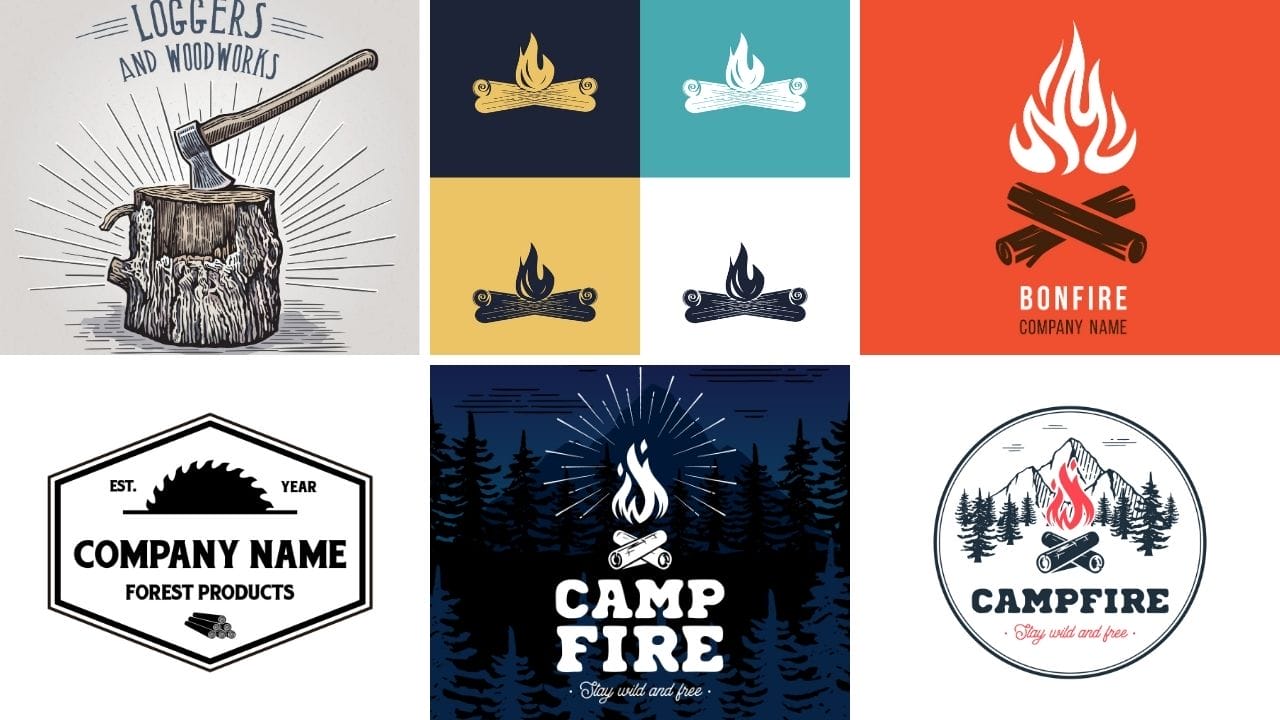
What’s in a name? Quite a bit, actually. Naming your business is an important step in the process and can even help you stand apart from the competition. You could go simple and name it something like ‘Bailey’s Firewood’ (I mean hey, look at Hershey’s), or you could be a little more cheeky and creative.
Something that always helps me when naming a company is thinking about the branding and messaging the name lends itself to. Does the name easily make you think of slogans or fun and enticing images?
For example, the name ‘Holy Smokes’ instantly makes me picture a branding direction. I see a Jesus or angel-like figure holding out a bundle of firewood, and for the logo, I see a campfire with a halo-type ring above it. This may be silly, but silly is better than boring, in my opinion.
Firewood Business Name Ideas
To get the brain going, here is a list of potential firewood-themed business ideas:
- Holy smokes
- The Campfire Co.
- Bundle Boys
- You’re Fired
- Crackle Co.
- Great balls of fire
- The pits
- Hot Stuff Firewood
- Get Lit
- All Fired Up
Get A Logo
After you choose a name, it’s time to have a logo made. A logo is just as important as your name; it’s a visual representation of your business. It will also help you feel more official and give you a sense of validity.
Nowadays, you can have a logo made from a variety of online resources depending on your budget. With logos, you usually get what you pay for. You don’t need to break the bank, but I wouldn’t recommend going too each either.
We recommend Fiverr if your budget is under $100
We recommend 99Designs if your budget is $300+
Step 2: Form A Business Entity

After you have your name and logo secured, it’s time to form an official business entity. There are several reasons you will want to put your business under something like an
1. Forming an LLC will protect your personal property and assets.
As a business owner, you are always at risk of lawsuits due to something like injury and an abundance of other frivolous claims. With firewood, chances of injury are greater than something like selling paperclips.
Not to scare you, odds are you will never face legal claims, but it’s better to be safe than sorry (and broke). Let’s say a drunk person is jumping over a fire on the beach using your firewood. That person ends up tripping and falling into the fire and claiming it was because of your ‘faulty’ firewood. Although a silly example, in this scenario, they would only be able to come after assets associated with the business if you have a business entity like an
If you do not have an entity established, they could potentially come after your personal finances and property. The random chance of this happening is worth the minimal fees it takes to form an official business.
2. It makes finances and bookkeeping easier
Finances
This one is more important than you might think. Having an
Bookkeeping
Having an
It’s extremely important to know your business numbers, and separating personal finances from business finances will make things much easier for you. You need to look at the bank account and see a clear picture of what is coming in and what is going out.
Do yourself a favor and if you aren’t good at it, get a bookkeeper that will be able to track everything for you. There are many online bookkeeping services available, specializing in helping small businesses. You don’t need to hire them full-time; it can be more on a freelance-type of basis.
3. An LLC will come in handy during tax time
There are many tax advantages of forming an
You will also be able to write-off business expenses and enjoy other tax benefits of owning your own business.
Step 3. Purchase Equipment
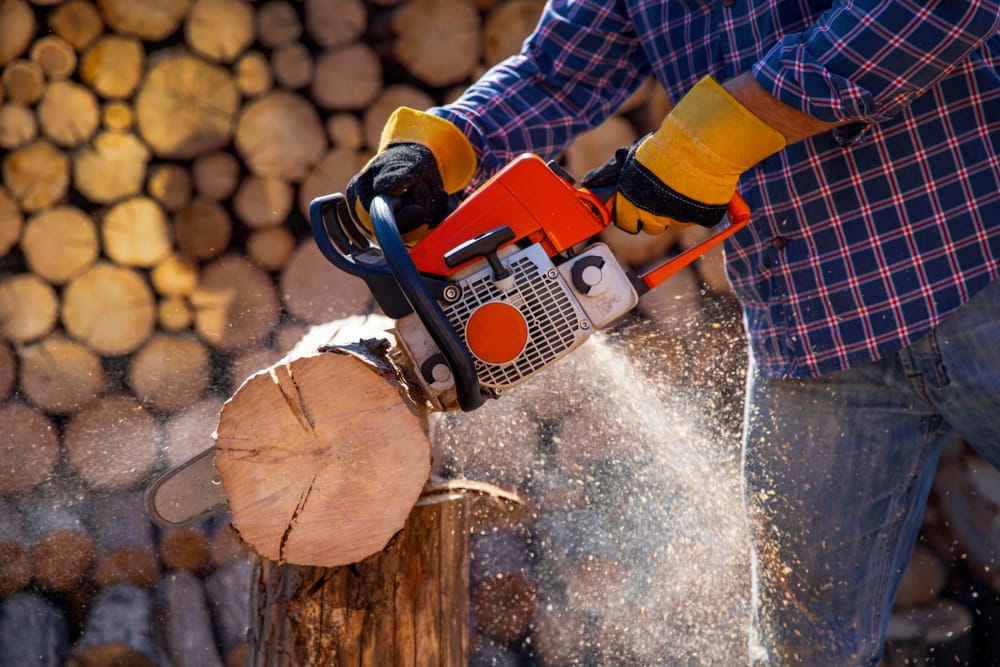
Starting a firewood business does take some initial startup capital. Compared to other businesses, startup costs are relatively low, depending on your situation. For example, if you already have a truck, this will save you a lot of money. Remember to think about everything you will need to complete the tasks of getting the inventory (firewood) and delivering it to your buyers. In some situations, customers may come to you, but you will most likely be delivering the wood to either a person or place of business for resale.
Here is our list of itemized equipment you will probably need to start your firewood empire.
Chainsaw
You will certainly need a chainsaw for cutting the logs and wood. You must educate yourself on proper use if not familiar. When it comes to buying equipment for your business, quality is king.
We suggest getting a gas-powered chainsaw that is at least 18 inches.
Log Splitter
After you have your firewood cut into pieces courtesy of the chainsaw, you will seriously want to consider a wood splitter. This will help you split your log into nice firewood-sized pieces. This will save you time, effort and will be much safer wielding an ax.
Splitters run the gamut in price, but you can get a nice electric or hydraulic splitter for under $500. Here are a couple of options depending on your budget.
For a lower startup budget
Kindling Splitter
Firewood Splitting Axe and Hatchet
Firewood Cord Strapping Kit
Sturdy Gloves
Truck and/or trailer
If you plan on delivering your firewood to suppliers or customers, you cannot get around having a truck or trailer to haul it in. Is the budget a factor? You can try borrowing a truck or getting a ‘beater' in the classifieds until you can afford something better.
If you have a car, an affordable trailer for hauling firewood is a good option. If you upgrade to a truck later, you can still use the trailer to store and haul wood.
Step 4. Get Inventory For Your Firewood Business
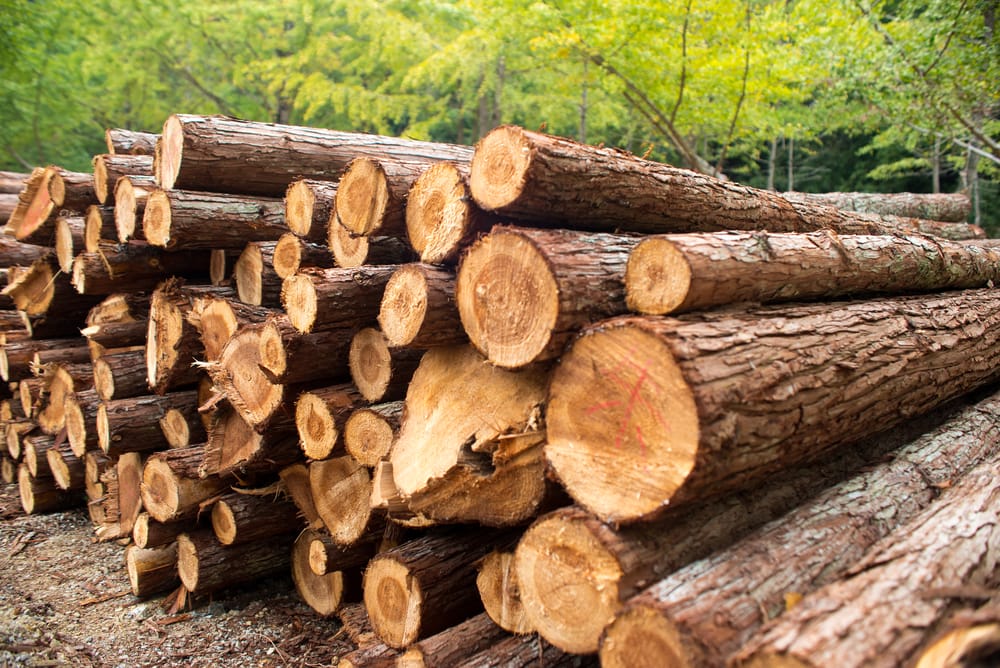
Maybe you had the idea of starting the business because you live on a property with lots of potential trees to harvest for wood. If that’s the case, then you already have this question answered and can move on to the next phase of the plan.
If you don’t have immediate access to wood, we will provide some examples of ways to acquire it. For sourcing wood, think creatively and explore the following sources.
Ways to source wood when starting your firewood business
1. Make a deal with friends or family with timber
If you know someone with trees, this is a great place to start. You can ask them if you can buy the tress outright, or if they want to participate in some kind of profit-sharing.
2. Find strangers with timber for sale.
You can find timber for sale on classified sites such as Craigslist all the time. This is a great place to start if you don’t have any connections.
3. List an ad on Craigslist yourself.
Sometimes, people have timber, and they want it gone. Place an ad in the classifieds that state you will take or buy timber. Many will lose trees in a storm or cut them down while doing landscaping on their home. This is a great opportunity for you to get free inventory and do them a service by hauling it away.
4. Check local lumber mills.
If your firewood business is scaling and you need a lot of inventory, lumber mills could be cost-effective for you. Ask them if they have defects that didn’t pass their quality control. This wood may not be great for building a home, but I bet you it still burns. See if you can make a deal to buy the rejects at a great discount.
Best types of wood for firewood
When it comes to the best types of wood to sell as firewood, there are a few winners that stick out. There are also some types of wood to avoid if possible. A good rule of thumb is hardwoods make for better firewood than softer woods. Softer woods will burn quicker and your fire will not last very long compared to harder woods.
3 best types of firewood
- Maple
- Oak
- Birch
3 types of firewood wood to avoid
- Pine
- Cedar
- Poplar
Step 5. Get Customers For Your Firewood Business

You have the equipment; you have the firewood, now it's time to get the customers for your firewood business. To help you with this process, you can ask yourself an important question.
Who will you sell to?
You will want to structure your firewood company differently depending on who you plan on selling to. For example, do you want to sell to wood stove owners in bulk, or would you primarily be focussing on small bundles for campgrounds or backyard fire pits? You may want to do both, but it might be best to focus on a specific angle when you’re getting started. It’s essential to know your target demographic and what your ideal customer looks like.
Types of customers you may want to sell to:
1. Grocery Stores

Have you ever seen bundles of firewood stacked up inside or outside a grocery store? Well, they didn’t get there by an employee going to the forest that day and chopping up some wood. Someone supplied them, and most likely, that someone is local.
Selling to a grocery store is a great way to sell a lot of firewood in bulk at once. Sure, you may not be able to charge as much as a single customer, but what you lack in the margin for one sale, you will make up in bulk. Think about it; you don’t have to acquire all the customers and deliver the wood; you have one big customer and supply them. A good strategy is only going after the local grocery stores and supermarkets.
How to get grocery stores as customers:
This is another example of where your
If you target a bigger store or chain, you can try walking in and talking to the manager. A lot of stores allow branches to supply certain items locally, especially things like firewood.
Bigger stores also have ‘buyers’ that handle the inventory and supply chain. Suppose you can find the contact information for the buyer and set up a meeting with them. The bottom line is you need to hustle and push your way through the door to talk to someone. Business is about relationships as much as anything else.
2. People with wood-burning stoves
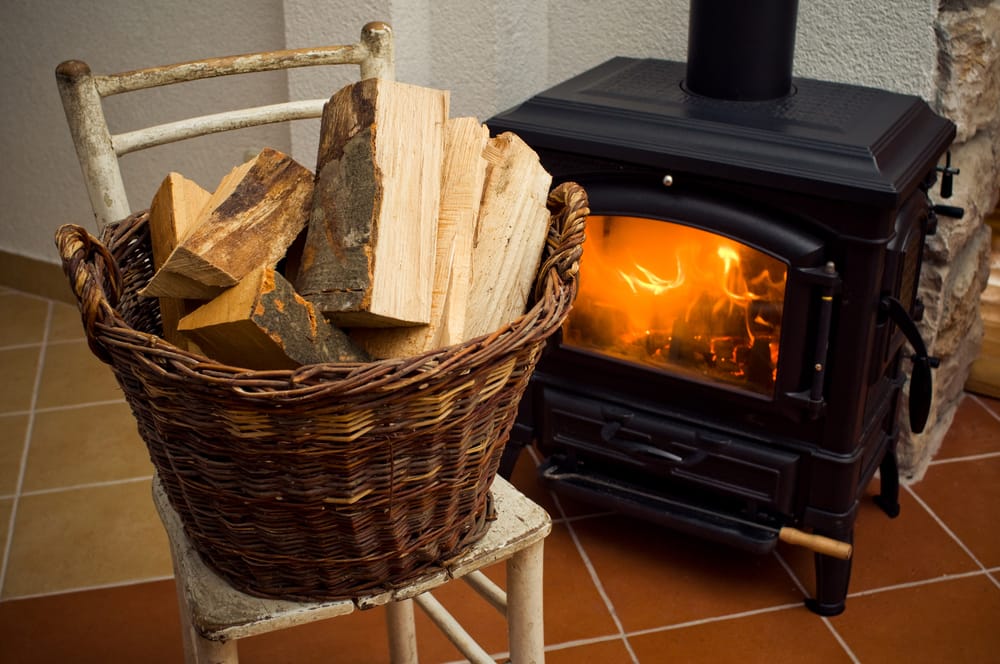
This is another category that people will most likely be buying large quantities of wood from you. Having a wood-burning stove requires fuel, and that’s where you come in. For this model, you will want to have a truck or trailer to deliver to them, or perhaps they might be willing to pick it up for a reduced fee.
How to get wood-burning stove customers:
Getting customers for wood-burning stoves isn’t as straightforward as grocery stores. One idea would be to go to wood stove stores and ask if you can leave a flyer or a stack of business cards for customers buying stoves. You could even ask to partner with them and offer a discount for a cord of wood with each stove purchase. Remember to think creatively and find a deal that will be mutually beneficial.
Another idea is to put an ad in the classifieds such as Craigslist or Facebook Marketplace. Offer your firewood for sale and any details that will make the purchase decision easy for the customer. Online classifieds are still a fantastic way to get business.
3. Weekend Warriors: Campers, Beach Goers & Backyard Pits

These customers are your bread and butter profit-margin type. You sell a small bundle of wood for an excellent markup, including some kindling and maybe even a started log or lighter as a nice upsell. They usually get the wood out of impulse or convenience, so they don’t mind paying a premium for the grab and go benefit.
How to get the weekend warrior business:
For campers and beachgoers, you could see about getting a permit to sell out of the back of your truck or trailer. You might even be able to negotiate to rent space in a popular parking lot or store. Offering a profit share to the property owner could be enticing enough for them to let you sell your firewood. Another option would be negotiating a similar deal with an owner of strategically located private property.
For those with backyard firepits, you can use a similar strategy with a combination of the suggestions above. You may want to think beyond grocery stores and talk to places like Lowe’s or Home Depot about carrying your firewood. Since both stores offer firepits for sale, this could be a great relationship. Offering a one-stop-shop for their firepit needs will make for some happy customers.
How much should I charge for the firewood?
Pricing is relative to who you are selling to and where you are selling. The best thing to do is to find comparables in the area by looking in classifieds, stores, etc. Essentially, the price should be what people are willing to pay. You will be able to charge more for the smaller bundles than selling bulk, but your bulk customers will be the easier sell.
A cord of wood ranges from around $130 all the way up to $400 depending on region, so make sure to do your own due diligence before pricing your firewood.
Firewood Business Startup Costs and Profit Potential

The following costs should get you up and running, assuming you get your logs supply free. Due to the variation of methods of acquiring your inventory, you may need to add the price of the wood to these figures. We've also included a trailer, if you already have a truck and don't want a trailer, you can subtract that from the total costs as well.
There are also some optional expenses we've left out, such as a website or additional marketing materials.
Total Startup Costs: $2,150.00
[ninja_tables id=”4525″]Profit Potential
Due to the nature of firewood, the profit can also vary. A large determining factor is your business model and who you’re selling to and in what quantities. If you get the wood for free from storms or private property, the profit will obviously be much higher than having to source your wood inventory by purchasing it. Rather than guess the profit, we will show you the range of pricing for various scenarios.
Cords Vs. Bundles
If you sell a cord of wood all at once, let’s say that’s an average of a $175 payday. However, if you break the cord into smaller bundles for vampires or firepits, you could probably sell that same cord for a higher price in total. Although a better payday, option two will require much more time and effort.
In general, you can get about 48 bundles of wood per cord. Let’s say you can sell a bundle of firewood for $6.00, as Tractor Supply does.
48 x $6.00 = $288

